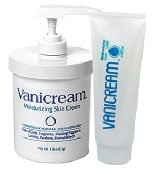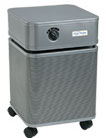What is eczema?
Eczema is inflammation of the skin, characterized by redness, swelling, and itching. “Dermatitis” is the medical term for inflammation of the skin and is often used interchangeably with eczema. In severe cases, the skin may flake, blister, crack, ooze, and bleed.
What is atopic dermatitis?
“Atopy” is the genetic tendency to develop allergic diseases like hayfever and asthma. Atopic dermatitis is the most common type of eczema; it results from the immune system overreacting to allergens, causing inflammation. Emotional distress can also trigger flare-ups in some cases. Atopic dermatitis usually runs in families, and according to EczemaNet, 10 to 20 percent of the world population suffers from atopic dermatitis at some point during childhood, but it normally clears up with age.
What is allergic contact dermatitis?
Allergic contact dermatitis results from an allergen or irritant coming in contact with the skin. Nickel and latex are two allergens that commonly cause allergic contact dermatitis. Poison ivy and its poisonous relatives also cause allergic contact dermatitis for many people.
Will my child outgrow eczema?
Eczema appears before age 5 in 90% of all cases. A little over half of these cases clear up with age, and the rest persist into adulthood.
What is the connection between atopic dermatitis, allergies, and asthma?
Anyone with atopic dermatitis is more likely to develop allergies and asthma. Researchers have found that allergens from the environment can actually enter our bodies through small cracks in our skin, and eczema weakens the skin barrier. People who suffer from both eczema and asthma carry the same gene mutation, and eczema may lead to asthma in some cases.
Is there a cure for eczema?
Currently, there is no cure for eczema. However, a wide range of eczema treatments is available.
How is eczema treated?
 For severe flare-ups, you should see a doctor and get medication. If your skin is infected, the doctor may prescribe antibiotics. Antihistamines may help reduce the itch and help you sleep; they are available in prescription and non-prescription strength. Prescription and non-prescription corticosteroid creams and ointments reduce inflammation.The most common effective treatment for eczema is the application of lotions or creams right after a shower to keep the skin moist. Vanicream Skin Cream & Vanicream Lite Lotion are recommended by dermatologists for people with sensitive skin. Free & Clear Liquid Cleanser is the ideal cleansing product for people with eczema, as regular soap can irritate and dry out the skin.
For severe flare-ups, you should see a doctor and get medication. If your skin is infected, the doctor may prescribe antibiotics. Antihistamines may help reduce the itch and help you sleep; they are available in prescription and non-prescription strength. Prescription and non-prescription corticosteroid creams and ointments reduce inflammation.The most common effective treatment for eczema is the application of lotions or creams right after a shower to keep the skin moist. Vanicream Skin Cream & Vanicream Lite Lotion are recommended by dermatologists for people with sensitive skin. Free & Clear Liquid Cleanser is the ideal cleansing product for people with eczema, as regular soap can irritate and dry out the skin.
How can I prevent eczema flare-ups?
Allergen avoidance is the key to preventing eczema flare-ups. Dust mites lead to flare-ups for many eczema sufferers. Dust mite allergen not only causes inflammation in those who are sensitive, but it also contains an enzyme that destroys the protective function of the skin. The most effective method of ridding your bedroom of dust mites is to encase your bed in allergy relief bedding.
 Air purifiers and HEPA vacuum cleaners eliminate dust mite allergen and other allergens like mold, pet dander, and pollen. DustMiteX carpet spray and de-mite laundry additive will also help keep dust mites and their destructive enzymes away from your skin.
Air purifiers and HEPA vacuum cleaners eliminate dust mite allergen and other allergens like mold, pet dander, and pollen. DustMiteX carpet spray and de-mite laundry additive will also help keep dust mites and their destructive enzymes away from your skin.
A humidifier will help keep you skin moist. Humidifiers are especially helpful during the winter when the air is cold, dry, and harsh on the skin.
Stress can also cause eczema flare-ups. You can reduce stress with exercise, meditation, and a healthier lifestyle.
 If you are allergic to nickel, you can avoid getting allergic contact dermatitis from jewelry with Nickel Solution. This two-part system allows you to easily test for the presence of nickel and protect yourself from nickel exposure. Nickel Solution is quick, easy, and safe to use; it will not harm you or your valuable jewelry, and it does not contain toluene, formaldehyde, or dibutyl phthalate, which could cause secondary contact dermatitis.
If you are allergic to nickel, you can avoid getting allergic contact dermatitis from jewelry with Nickel Solution. This two-part system allows you to easily test for the presence of nickel and protect yourself from nickel exposure. Nickel Solution is quick, easy, and safe to use; it will not harm you or your valuable jewelry, and it does not contain toluene, formaldehyde, or dibutyl phthalate, which could cause secondary contact dermatitis.
